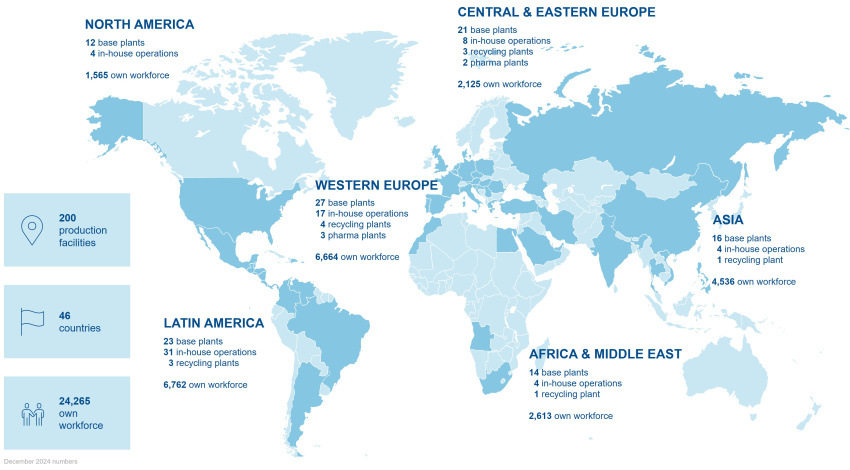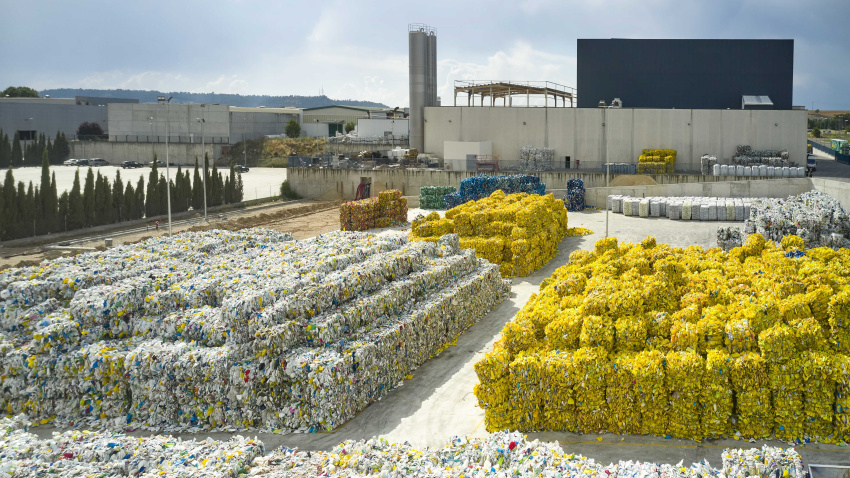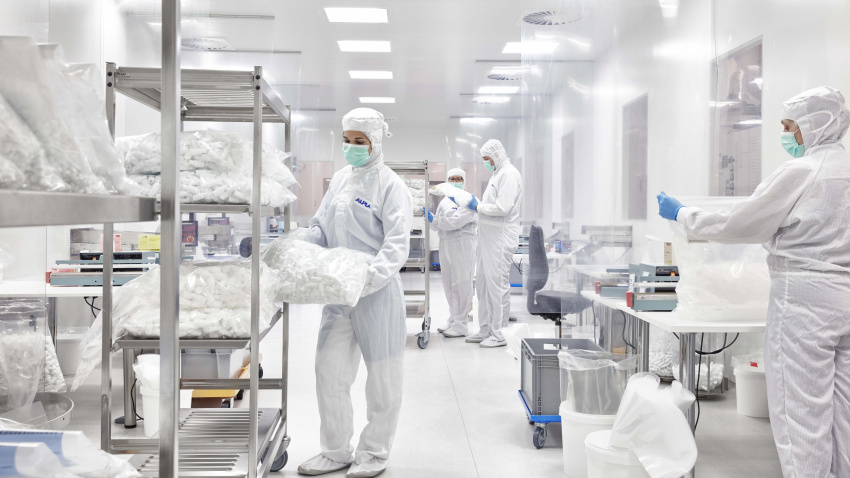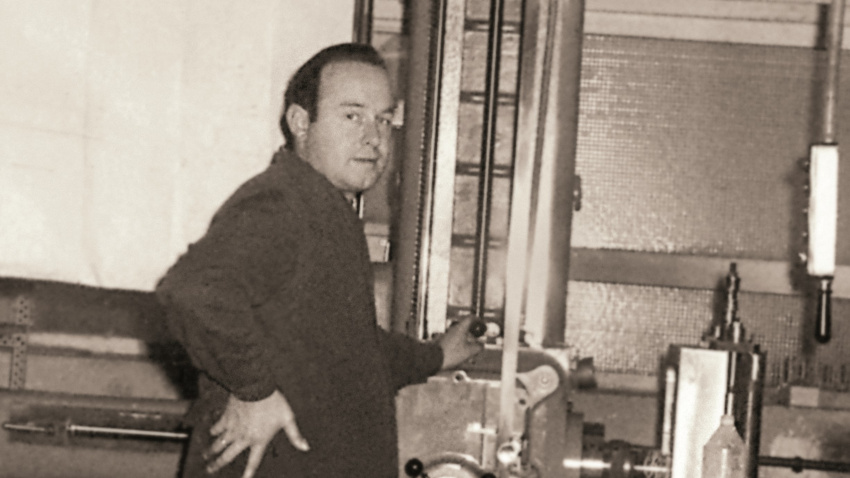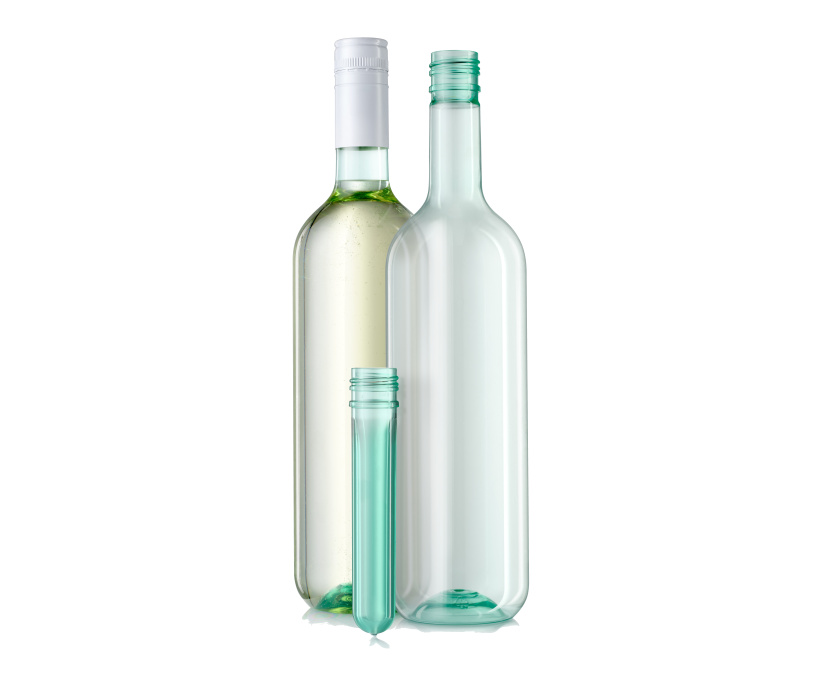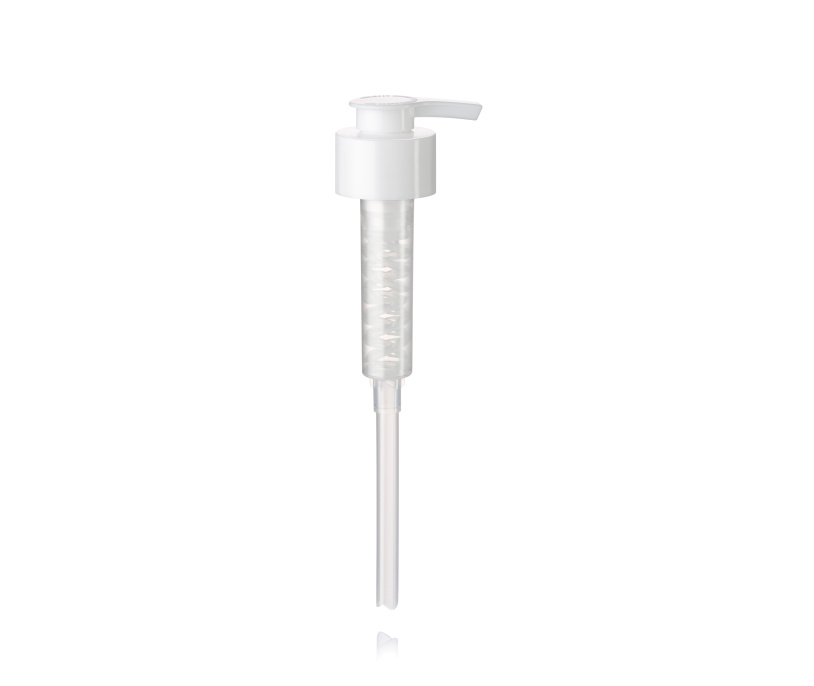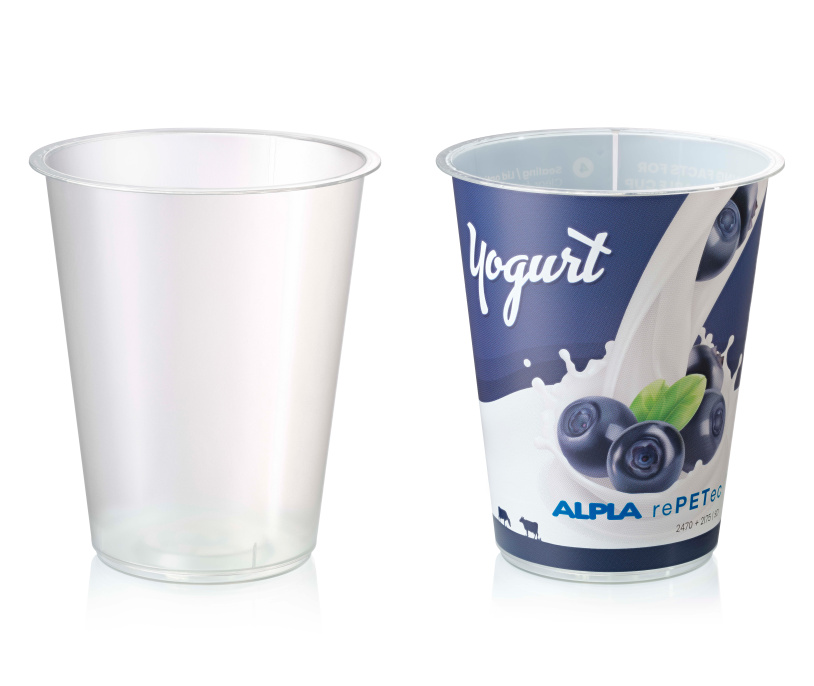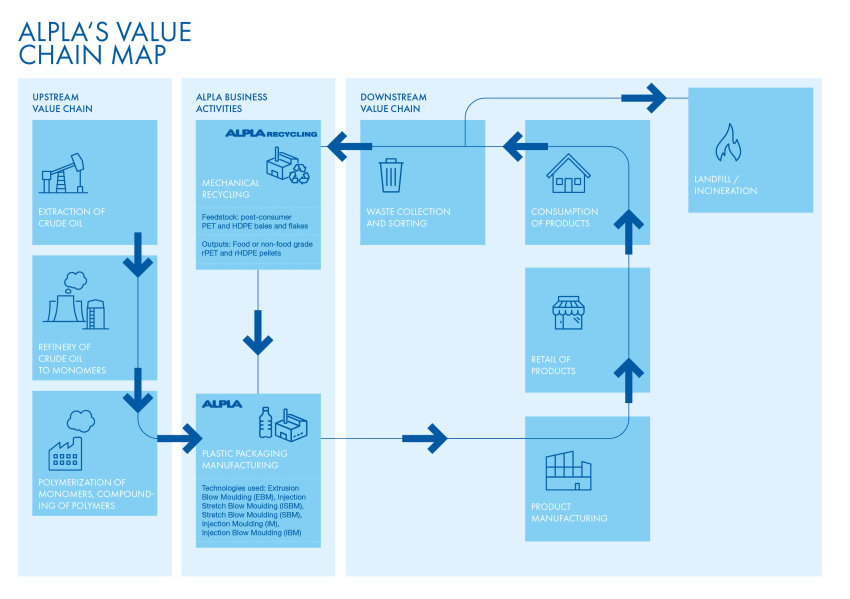About ALPLA
ALPLA is a global leader in the development and production of high-quality rigid plastic packaging solutions, operating 200 production sites across 46 countries and employing more than 24,000 people worldwide at the end of 2024. We specialise in innovative packaging systems, including bottles, closures and injection-moulded parts, and cater to a diverse range of industries. Our products serve both global brand owners and local customers, reaching an estimated 3 billion consumers worldwide. With over 30 years of mechanical recycling expertise, we are also committed to closing the loop for plastic waste.

